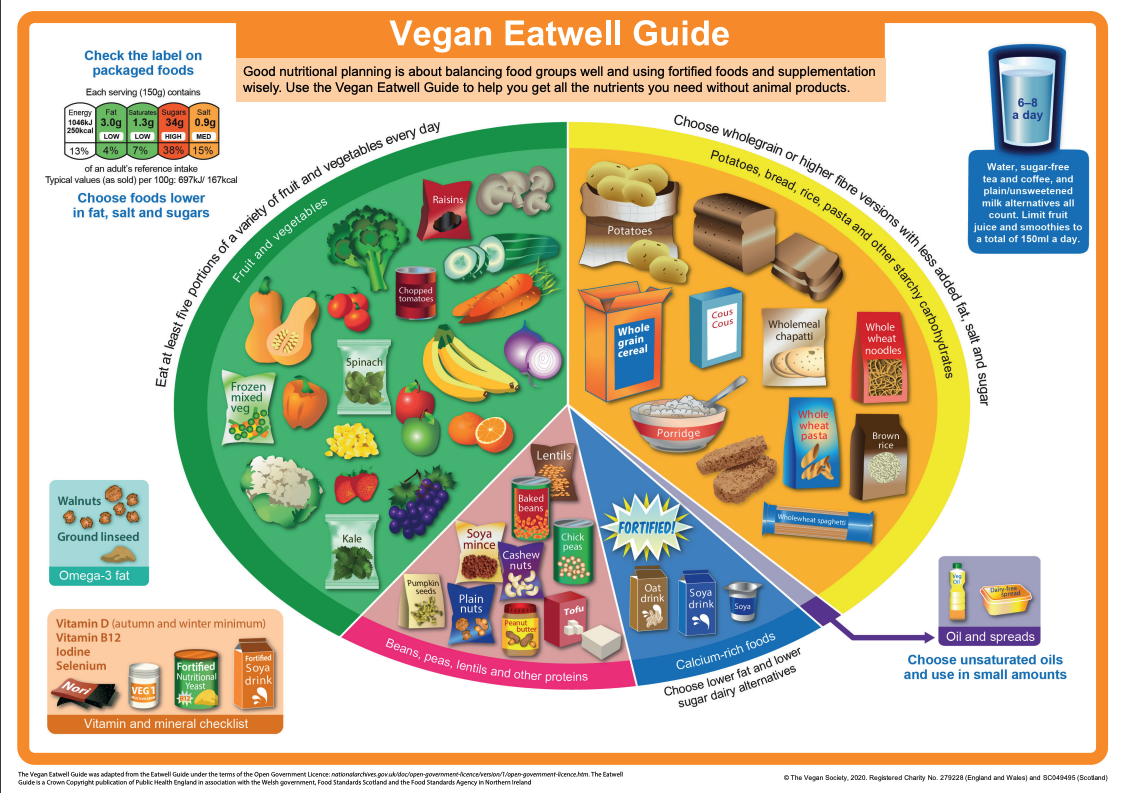Vegan and plant-based diets are on the up and supermarkets are stocking more vegan options than ever to cater to the millions of people now following a vegan way of eating.
Whatever your reason, whether ethical, environmental or religious, here’s why packing more plants into your diet has a whole host of benefits and what to look out for in ‘vegan’ labelled products…
Plant, plants and more plants
Eating more plant foods, packed with essential fibre to feed our gut microbes, as well as vitamins and plant chemicals (such as polyphenols), has been acknowledged as the best evidence-based strategy for supporting your gut health.
Although you don’t need to go vegan to have a healthy gut, the more plant-based diversity you have in your diet, the merrier. That’s because this diversity of plants is associated with having more diverse gut microbes (including bacteria) – and, as a result, better overall health, including supported immunity, benefits to metabolism, improved mood and better energy levels.
This explains why many health benefits of plant-based diets are, at least in part, mediated by our GM (gut microbiota – the trillions of microbes living in our gut).
If you think plant-based eating is restrictive, think again! There are over 350,000 types of plants across the six main plant-based food groups: fruits, vegetables, wholegrains, legumes (beans and pulses), nuts and seeds, herbs and spices. Aim for 30 plant points a week as your diversity goal – that’s 30 different types of plant-based foods every week.
But…
Vegan doesn’t necessarily mean ‘healthy’
While a vegan diet that focuses on high-fibre whole plant foods can be beneficial, a vegan diet that relies on highly processed ‘meat-free’ alternatives and white grains isn’t going to do your gut health any good.
Take vegan cheeses, for example. ‘Normal’ cheese is fermented by bacteria, which are considered to be beneficial for our bodies. However, vegan cheeses are not fermented and the processing could degrade many of the beneficial nutrients usually found in plant-based foods.
‘Fake’ meat products, from pea protein patties to tofu ‘chickn’, also tend to be loaded with additives, by trying to create the same texture and flavour as real meat.
While preservatives and other food additives have been rigorously tested historically and accepted as safe by the European Food Safety Authority before they’re allowed into our food, their impact on our gut microbes has largely been ignored – simply because we didn’t recognise the importance of our GM back when most of the testing took place.
Updated testing is underway, but there are still many unknowns. Animal studies so far have suggested some additives may not be good for our gut microbes, as they can trigger gut inflammation in those susceptible. Stay tuned for more research results!
My advice: check the label for mysterious ingredients, or why not make your own!
Thinking about adding plenty more plants into your diet? Go slow and steady!
Our large intestine can be a little sensitive to change, more so in some than others. When you go from a little to a lot of fibre too quickly, you may be left feeling bloated and gassy. That’s because your gut microbes will be loving their new feast and can get a bit carried away, producing extra gas.
My top tip: take it slow, increasing by one portion per week and gradually working your way up to your target of 30g fibre a day. It’s a good idea to have an extra glass or water too, as fibre needs hydration to work some of its magic.
If you’re following a vegan diet, there are some key nutrients to make sure you’re getting enough – check out the Vegan Eatwell Guide (from the Vegan Society), as well as my post here and my book for more detail.

The Vegan Society
If you’re worried about nutritional deficiencies, it’s a good idea to speak to a qualified dietitian – head over to The Gut Health Clinic if we can help.













